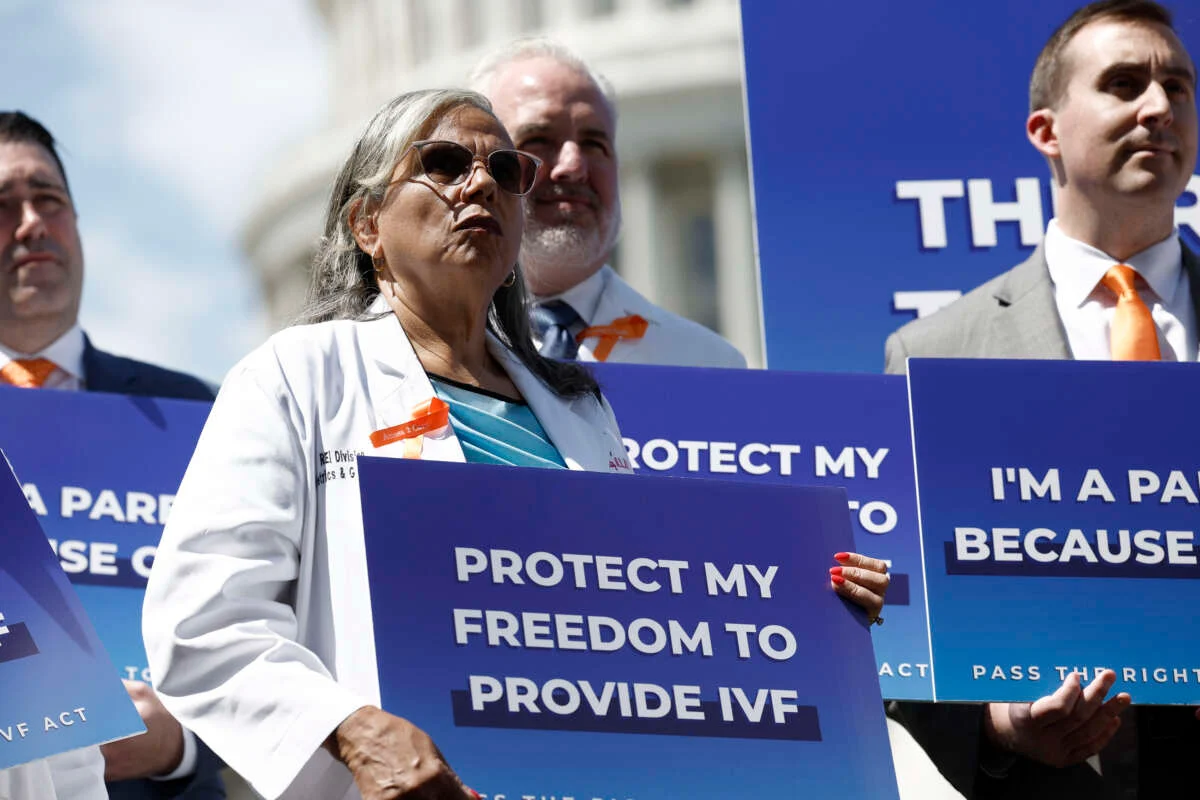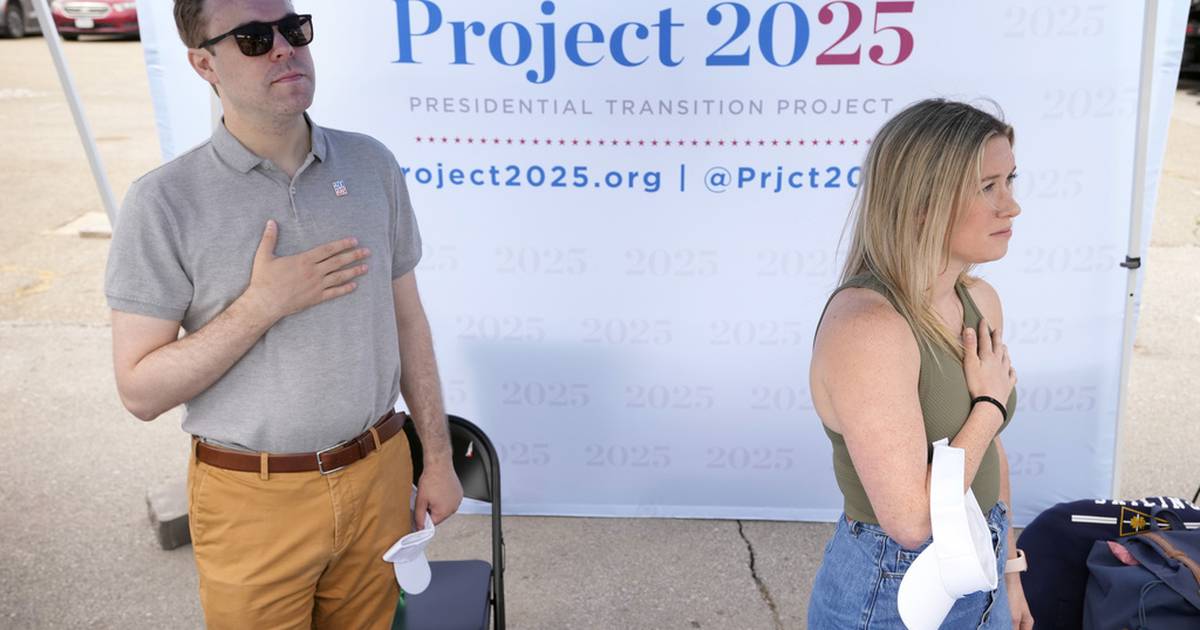Originally by at Truthout
Early childhood educator Sammi Gerken, a married mother of a 3-year-old, became a surrogate in late 2022 and calls the experience “rewarding on all fronts.” “I was proud and happy to give a couple who had struggled with infertility for 11 years what they’d dreamed of — a baby — something that would have been impossible without me,” she told Truthout.
Even as a child, Gerken says that she was fascinated by birth, pregnancy and motherhood. “I used to watch YouTube videos, which is where I learned about in vitro fertilization, surrogacy and infertility. Watching people struggle to achieve a healthy pregnancy pulled at my heart. I couldn’t imagine longing for a baby and not being able to have one. After a successful pregnancy with my daughter in early 2021, I felt it was time to explore becoming a surrogate.”
And, although Gerken said that she had to go through numerous medical procedures, including hormone injections, to sustain the pregnancy, she is “beyond glad” she did it.
She is also thrilled that she and the receiving family continue to be in touch. Throughout the pregnancy, Gerken said that they exchanged daily texts and frequently met over Zoom. Then, after the baby was born, she pumped breast milk for four months. “It was a beautiful way to stay connected,” she said. “Although we no longer text as often, I’ll see them in August for the baby’s first birthday. We all want to have a lifetime relationship. Our hearts will forever be connected.”
As Gerken speaks, it’s obvious that she is passionate about the efficacy of surrogacy. This is why Project 2025, a 922-page right-wing wish list and game plan that is explicit about its intent to impose a nationwide ban on abortion and limit access to contraceptives, IVF and surrogacy, enrages her. “Why should outsiders decide how people grow their families?” she asks. “Surrogacy is love. It’s a valid way to build a family.”
The right-wing, of course, disagrees — even as the Republican National Committee’s official platform strategically steers clear of a direct attack on reproductive autonomy. But Project 2025 is far more explicit, and its authors are hell-bent on creating what Kevin Roberts, president of the Heritage Foundation, the organizational mastermind behind Project 2025, calls “the second American revolution.”
For Heritage and the more than 100 organizations that endorse the plan, that revolution involves the creation of a policy agenda for the first 180 days of a GOP presidency and lays “the groundwork for a White House more friendly to the right.” The plan also includes the creation of a personnel database of conservative movers and shakers, something that Paul Dans, director of the 2025 Presidential Transition Project at Heritage and Trump’s former director of the Office of Personnel Management, likens to a LinkedIn or Facebook for the right. Should this roster include people new to government, he says, a Presidential Administration Academy has been established to train potential staffers for every federal agency. A series of free, online, asynchronous classes covers everything from how to get a security clearance, to “the dangers of the administrative state,” to how federal budget processes and procurements work. This, of course, is to ensure that a well-trained workforce is ready to jump in on day one to serve the MAGA cause.
What’s more, Project 2025 provides an agency-by-agency playbook that explains what each government department will advocate for and do.
In an interview with The Washington Stand, the daily news site of the Christian nationalist Family Research Council, Dans stressed that,
We want new folks to come in and serve, essentially, but to do that they need to know how this game is played and the rules of the road. That’s what we are hoping to do. We’re going to identify talent and then we’re going to teach you essentially what our core group of beliefs is…. We need to have an entire army of conservatives coming to Washington.… In the past, the transition effort has really been the second thought for the candidate.
But not this year.
“We want every potential applicant to curate his or her own page and upload their resume, list their social media, take some background diagnostic tests,” and make themselves known, Dans told The Washington Stand.
Unsurprisingly, anti-abortion credentials and a commitment to eroding access to reproductive health care are feathers in the cap of job applicants.
Project 2025 Threatens Reproductive Care
According to Media Matters for America, a media literacy and watchdog organization, the Project 2025 plan, officially called the “Mandate for Leadership: The Conservative Promise,” aims to remove the word “abortion” from all federal laws and regulations; roll back the Food and Drug Administration’s approval of medication abortion; use the Comstock Act, a Victorian-era law that was passed in 1873, to ban the mailing of abortion pills and stop clinics from receiving shipments of supplies and equipment; and limit access to birth control, in vitro fertilization and surrogacy. Moreover, Project 2025 seeks to end research using fetal tissue and stop the sale of nonprescription emergency contraception, including the popular over-the-counter pill Ella, which it erroneously claims is an abortifacient.
The Media Matters report, “Inside Project 2025’s Attacks on Reproductive Rights,” further states that Project 2025 hopes to elevate draconian state policies, like a Louisiana law that makes “carrying abortion medication without a prescription” a crime, into federal law.
Additionally, Media Matters zeroes in on Project 2025’s promotion of fallacies, among them that taking a daily birth control pill causes infertility; that IVF is unregulated; and that frozen embryos are children. Media Matters also points out that “at least 17 partner organizations of Project 2025 have published and publicly presented anti-surrogacy arguments,” including the idea that surrogacy is “morally wrong.”
“From the moment of conception,” Project 2025 states “every human being possesses inherent dignity and worth and our humanity does not depend on our age, stage of development, race or abilities.”
This statement is a particularly bitter pill to swallow for Stetson Law School professor Robyn M. Powell, a nationally recognized expert on disability law and its intersection with reproductive justice. “The anti-abortion movement has used disabled people as pawns for years, and the idea that legal abortion encourages eugenics — policies that dictate who is fit and who is unfit to have children — is absurd,” Powell told Truthout. “People with disabilities are disproportionately impacted by anti-abortion policies that tell us what we can and can’t do with our bodies.”
In addition, she says that despite lip service about the value of every human life, those who oppose abortion do little to nothing to support or improve the lives of those living with disabilities. “As disabled people, we understand that attacks on the rights of the poor, the LGBTQIA+ community and women are attacks on us since we are part of multiple marginalized communities,” she said.
In addition, Powell sees Project 2025’s emphasis on deregulation as another potent area of attack, since eliminating federal agencies such as the Department of Education and the Occupational Safety and Health Administration — long-standing goals of the Heritage Foundation as well as many others on the right, and explicitly advocated in Project 2025 — would cause irreparable harm to the disabled.
“Project 2025 impacts everything,” Powell told Truthout. “It is infuriating.”
Andrew Beck, senior staff attorney at the ACLU’s Reproductive Freedom Project, agrees that the project has deep tentacles, but is keeping his eyes on Project 2025’s implications for abortion access. “Despite Trump’s efforts to obfuscate the issue, abortion is on the ballot this year,” Beck told Truthout. He calls Project 2025 “a 900-page nightmare,” and says that some of the document’s most egregious provisions are buried deep within it.
“The Comstock Act is never mentioned by name,” Beck noted. (Instead, the document references “long-standing federal laws that prohibit the mailing and interstate carriage of abortion drugs.”)
“For many decades, the Comstock Act was assumed to have no application whatsoever for abortion care,” Beck said. “But in the last few years, a drumbeat has been heard and echoed by Project 2025 to use Comstock, a law that is already on the books, as a back door to a nationwide abortion ban. This statute makes it a crime to mail or ship ‘any article or thing designed, adapted, or intended for producing abortion.’ If they use Comstock, they do not need Congress to pass an abortion ban.” Project 2025, he continues, is also “gunning for medication abortion. This has been a target of anti-abortion politicians for a long time, but now that two-thirds of all U.S. people who have abortions use pills, this goal has been heightened.”
Beck further notes other potential incursions that could impact reproductive health, including the desired weakening of the Health Insurance Portability and Accountability Act (HIPAA), passed in 1996 to keep medical information from being shared without the patient’s permission, and an end to the over-the-counter sale of emergency contraceptives.
“The ACLU is doing all it can to raise the alarm about Project 2025 to elevate public concern about a second Trump administration,” Beck said. “We’re also working with members of Congress to address the threat the Comstock Act poses.”
Repealing Comstock
That effort got a boost from Tina Smith (D-Minnesota), who introduced the Stop Comstock Act into the Senate in June. The bill has 18 co-sponsors: A companion bill was introduced in the House by Representatives Becca Balint (D-Vermont), Cori Bush (D-Missouri), Bonnie Watson Coleman (D-New Jersey), Veronica Escobar (D-Texas) and Mary Gay Scanlon (D-Pennsylvania).
Reproductive justice activists and care providers know that getting the Stop Comstock Act passed is important — albeit a long shot in a GOP-controlled House of Representatives — but they also know that much more is needed to keep Project 2025’s policies at bay.
“Abortion is a vehicle to access our full humanity,” Merle Hoffman, president and CEO of Choices Women’s Medical Center in New York City, told Truthout. As a care provider since 1971, when New York State first legalized abortion, Hoffman says, “We need a unified movement to fight a defensive battle.” She explains that one way to do this is to train and mentor the next generation of physicians, midwives, nurse practitioners, physician’s assistants and social workers — something that Choices has made part of its mission.
“The people behind Project 2025 are serious and they believe wholeheartedly in what they’re advocating,” she said. “Heritage has worked on this agenda for decades and the pro-choice movement has underestimated them and treated their aspirations as ridiculous and unachievable. At the same time, the Democrats have certainly not been knights on white horses. They’ve allowed abortion to be referred to as something that should be safe, legal and rare rather than a normal part of reproductive health care. They’ve allowed the Hyde Amendment to cut off Medicaid funding for abortion. They have never been our saviors … neither they nor the courts will save us.”
She and others are working tirelessly to fight back and she is cheered that the newly formed Abortion Access Now coalition has unveiled a 10-year plan to win back abortion access and move beyond what Roe v. Wade provided. The $100 million initiative will bring nine groups together. Among them are the ACLU, the Center for Reproductive Rights, In Our Own Voice: National Black Women’s Reproductive Justice Agenda, the National Latina Institute for Reproductive Justice, the National Asian Pacific American Women’s Forum, Planned Parenthood and Reproductive Freedom for All. These groups pledge to work together to build “a future where abortion, and all sexual and reproductive healthcare, is not only legal but also accessible, affordable and free from stigma or fear.” The Hill reports that the 10-year plan includes “lobbying efforts, grassroots organizing and public education initiatives” to “build a long-term federal strategy to codify the right to abortion.”
Despite this formation, Hoffman concedes that the magnitude of the attacks on reproductive freedom can feel overwhelming but says we can’t let fear and demoralization keep us from organizing and educating people about the threats we’re facing. “It’s all of our responsibility to fight for abortion and reproductive justice without borders,” she says.
Read the Original Story





